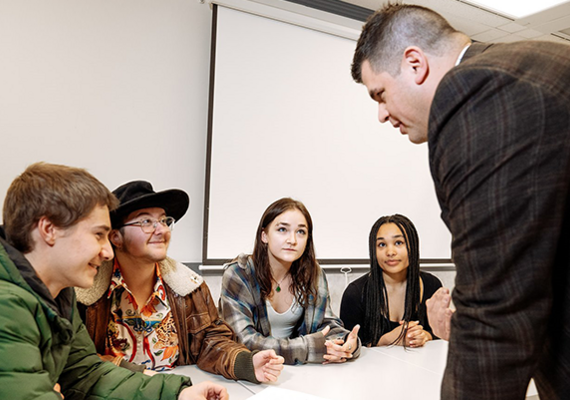
Explore our course offerings
You can browse all courses in the calendar and view course scheduling information in your student centre. Course outlines will be available in D2L.
Graduate program contacts
Contact us for any questions you may have about the programs we offer in the Department of English.

